Back to School – School Bus Safety
Tuesday, August 30th, 2016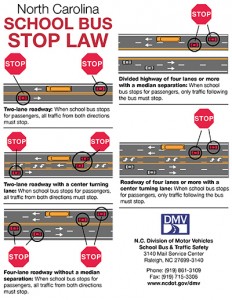 This week, many North Carolina children said goodbye to their summer break and began the 2016-2017 school year. For many students, this involves riding a school bus to and from school. There are thousands of school buses traveling North Carolina highways daily, which means that it is incredibly important for drivers to pay attention to the road and avoid distractions in order to keep everyone safe.
This week, many North Carolina children said goodbye to their summer break and began the 2016-2017 school year. For many students, this involves riding a school bus to and from school. There are thousands of school buses traveling North Carolina highways daily, which means that it is incredibly important for drivers to pay attention to the road and avoid distractions in order to keep everyone safe.
It is extremely important for drivers to be cautious, aware, and patient on the road, especially around crosswalks, schools, and buses at this time of the year.
Drivers are required by law to stop when a school bus is loading or unloading passengers, but it is also important for parents to inform their children to stop and look both ways when getting on or off of the school bus, just in case a driver does not stop for the stopped bus for any reason.
Everyone must stop if it is a:
- Two-lane road (with or without turning lane)
- Four-lane road with no separation
- Center turn lane with less than 4 lanes
Only drivers following the school bus need to stop when there is a:
- Center turn lane with at least four other lanes
- Four lane road or more with a median or some sort of physical boundary
According to North Carolina State Law (N.C.G.S. 20-217), a driver must stop when a school bus is displaying its mechanical stop signal or flashing red lights and the bus is stopped for the purpose of receiving or discharging passengers, the driver of any other vehicle that approaches the school bus from any direction on the same street, highway, or public vehicular area shall bring that other vehicle to a full stop and shall remain stopped. The driver of the other vehicle shall not proceed to move, pass, or attempt to pass the school bus until after the mechanical stop signal has been withdrawn, the flashing red stoplights have been turned off, and the bus has started to move.
Consequences for motorists who fail to comply with school bus safety rules:
- $500 penalty and five-point penalty to your driver’s license if you pass a stopped school bus
- Minimum fine of $1,000 and a Class I felony if you pass a stopped school bus and strike someone
- Fine of $2,500 and a Class H felony if someone is killed
If you or somebody you know receives a citation for not complying with school bus safety rules or face any other kind of traffic or criminal charges in our area, Collins Law Firm can help. Please give us a call at 910-793-9000 for a confidential consultation.
By Kimberlin Murray, Legal Assitant at Collins Law Firm

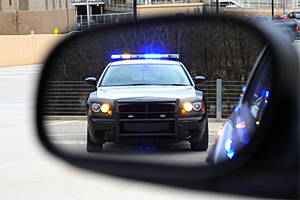 A traffic ticket can cause a lot of headache. It starts with embarrassment when the blue lights come up in your rear view mirror and when you have to sit on the side of the road while the officer investigates and issues your ticket and it continues far beyond. If you receive a traffic ticket, you should consult with an attorney on how to best handle your ticket.
A traffic ticket can cause a lot of headache. It starts with embarrassment when the blue lights come up in your rear view mirror and when you have to sit on the side of the road while the officer investigates and issues your ticket and it continues far beyond. If you receive a traffic ticket, you should consult with an attorney on how to best handle your ticket.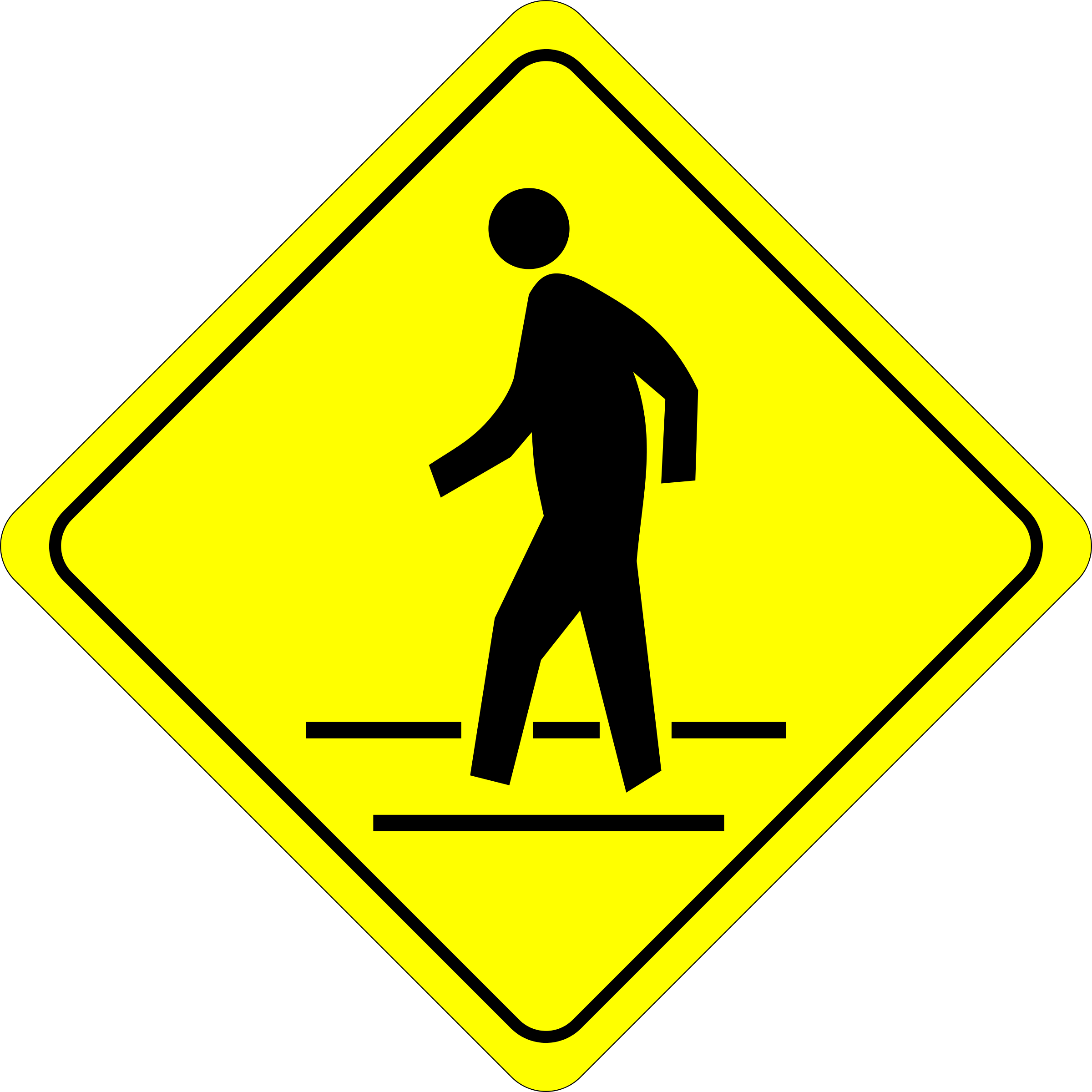 While preferences vary when it comes to transportation, everyone is a pedestrian at some time, and most know to keep their distance from moving traffic. Unfortunately, according to data released by the National Highway Traffic Safety Administration, about 69,000 pedestrians got hurt and 4,432 were killed in traffic crashes in the United States in 2011. This means that on average every two hours a pedestrian was killed and about every eight minutes, a pedestrian got hurt in traffic in 2011.
While preferences vary when it comes to transportation, everyone is a pedestrian at some time, and most know to keep their distance from moving traffic. Unfortunately, according to data released by the National Highway Traffic Safety Administration, about 69,000 pedestrians got hurt and 4,432 were killed in traffic crashes in the United States in 2011. This means that on average every two hours a pedestrian was killed and about every eight minutes, a pedestrian got hurt in traffic in 2011. Year after year during the Thanksgiving holiday period we experience one of the most travel heavy times of the year. This year a large storm threatens our Thanksgiving holiday travel and may require a lot of patience while on the roads.
Year after year during the Thanksgiving holiday period we experience one of the most travel heavy times of the year. This year a large storm threatens our Thanksgiving holiday travel and may require a lot of patience while on the roads.
 The holiday season is in full swing and so is the North Carolina “Booze It & Lose It” Campaign, created by State Transportation Secretary Gene Conti in an effort to remove impaired drivers from the road and keep our citizens safe. Checkpoints and increased patrol began on December 6th and will continue through January 2, 2013, to help reduce the rising number of alcohol related crashes, injuries and fatalities state wide.
The holiday season is in full swing and so is the North Carolina “Booze It & Lose It” Campaign, created by State Transportation Secretary Gene Conti in an effort to remove impaired drivers from the road and keep our citizens safe. Checkpoints and increased patrol began on December 6th and will continue through January 2, 2013, to help reduce the rising number of alcohol related crashes, injuries and fatalities state wide.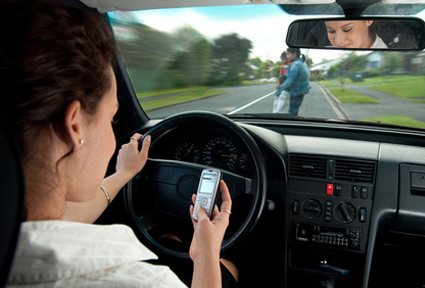 Over the past twenty years, cell phones have become an essential part of day to day life for many Americans. Cell phones continue to provide us with the convenience to communicate while on the go, comfort in knowing we have a way to call for help in case of an emergency, and access to music, games and entertainment. Cell phones can make life easier, but when used irresponsibly, can have disastrous consequences.
Over the past twenty years, cell phones have become an essential part of day to day life for many Americans. Cell phones continue to provide us with the convenience to communicate while on the go, comfort in knowing we have a way to call for help in case of an emergency, and access to music, games and entertainment. Cell phones can make life easier, but when used irresponsibly, can have disastrous consequences.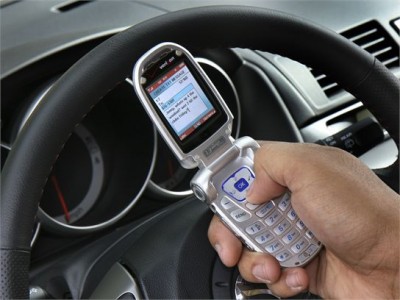

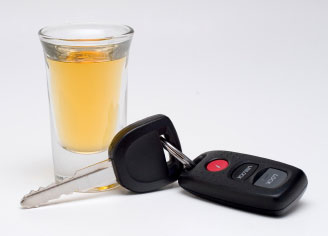 The holidays are upon us and most people are attending holiday parties and other holiday events. Many of these events offer alcohol and law enforcement is aware of that fact. Enforcement of traffic laws are often increased during holidays and this season is no exception. Last week alone, for example, there were over 70 people charged with driving while impaired (DWI/DUI) in New Hanover County, NC.
The holidays are upon us and most people are attending holiday parties and other holiday events. Many of these events offer alcohol and law enforcement is aware of that fact. Enforcement of traffic laws are often increased during holidays and this season is no exception. Last week alone, for example, there were over 70 people charged with driving while impaired (DWI/DUI) in New Hanover County, NC.  Traffic tickets can be a lot more expensive than the fine and court costs stated on the ticket. For most traffic tickets, if you just pay off the ticket, you will be convicted of the charge, and you will be assessed points both on your driver’s license and on your insurance policy. Insurance points can be very expensive. They cause your insurance premiums to increase for three years, and for most policies, that will add up to thousands of dollars. Details about insurance points and the percentage of premium increases can be found
Traffic tickets can be a lot more expensive than the fine and court costs stated on the ticket. For most traffic tickets, if you just pay off the ticket, you will be convicted of the charge, and you will be assessed points both on your driver’s license and on your insurance policy. Insurance points can be very expensive. They cause your insurance premiums to increase for three years, and for most policies, that will add up to thousands of dollars. Details about insurance points and the percentage of premium increases can be found